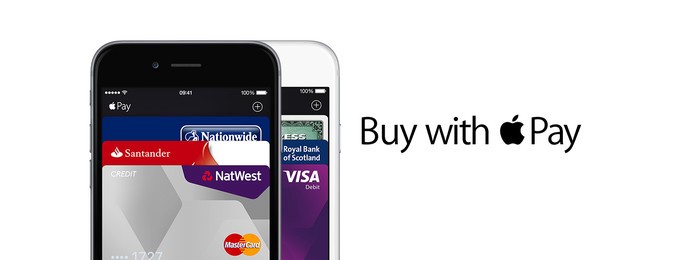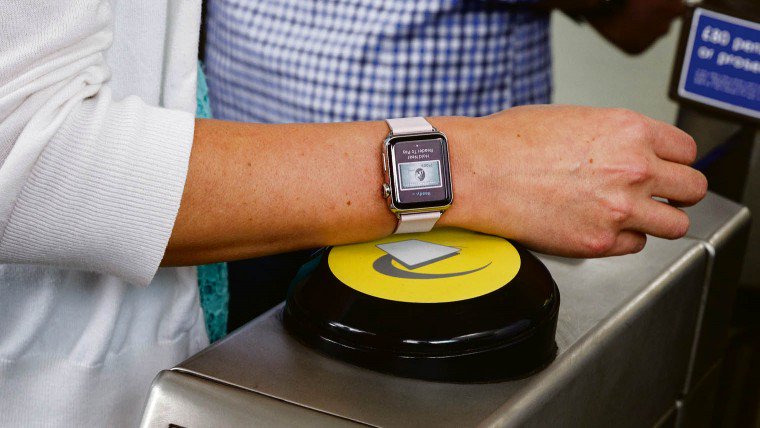Apple Pay has arrived, could this mark the beginning of the mobile payments explosion?
Apple Pay, what is it?
Launched on the 14th of July, Apple Pay will allow customers owning an iPhone 6, 6 Plus or Apple Watch (which can connect to an iPhone 5, 5c and 5s) to register their debit/credit card from most of the top UK banks and pay for goods in a matter of seconds.
The technology relies on Touch ID and NFC, which is now widely used across POS systems in the UK, to authenticate the customer and transmit the tokenised and encrypted card number.
A recently filed patent by Apple reveals their intentions to take this further. The patent describes a method by which Apple Pay could be used to send P2P payments between iOS devices, all using exactly the same existing technology described above.
Why does it matter now?
With the iPhone holding a 40% market share of all UK smartphone sales and contactless payments reaching £2.3 billion in 2014 for the UK, this could signal the start of a major adoption in this technology.
The Apple Watch is quickly proving more convenient than the iPhone for TfL payments.
Any POS system which currently accepts contactless payments will accept Apple Pay and by 2020 all Visa terminals in Europe will accept contactless. This includes TfL, Boots, Starbucks and a range of other companies who are partnering with Apple to ensure the rollout is smooth. Many of these companies have also implemented the feature into their iOS apps, allowing customers to purchase goods quickly and securely. This functionality is extended to the iPad Air 2 and iPad Mini 3.

Initially there will be a £20 limit on in-store purchases with Apple Pay and this will be increasing to £30 in September. Retailers may opt-out of the limit (some already have) and this can already be seen in the US where there are no limits on the transaction amount.
In-store reward cards are also expected to be introduced to the UK after they launch in the US later in the year. With one tap, a customer can pay for goods and receive any loyalty points from the transaction; the iPhone selects the correct reward card at the correct time.

Google’s Android Pay is set to launch in the US this year and as-of-yet has no UK release date. The significance of the two largest phone operating systems now looking to take on the role of our wallets should not be overlooked. As these smartphones and wearables become further integrated into everything we do, it is difficult to see where their reach ends. Already they are being used in hotels as your room key, in your home to control your heating and now they are in control of your payments. Perhaps this will extend to passports, driving licences and corporate IDs.
The Apple Watch makes the real-world interaction of software so much more frictionless; even eight years after the iPhone launched it is still unclear how much of our daily life is set for change.
What is the effect on Financial Services now?
For the next few months, customer uptake of services like Apple Pay will largely inform the speed at which this technology evolves. Two out of every three dollars spent using contactless payments in the United States is attributable to Apple Pay and it is already the market leader of mobile wallets.
Adoption of the technology (and other iOS features such as Touch ID) can be a simple but effective way for companies to innovate with a purpose. The trade-off is a need for a more accepting approach to adopting technologies outside the control of the bank/retailer; involving a third party, such as Apple, in the end-to-end payment process increases the number of points of failure. However, security and privacy are now such vital features of their implementation that customer trust is paramount to success, therefore Apple is incentivised to meet all the standards expected by banks and customers alike.
The Takeaway for Businesses
Apple Pay is in its infancy but it will very quickly grow up. How you adopt it within your business is an important long-term decision and a decision that must be made soon. Failing to respond is inexcusable however choosing not to adopt Apple Pay could be an option; nevertheless finding an alternative with as much potential and polish will be challenging.